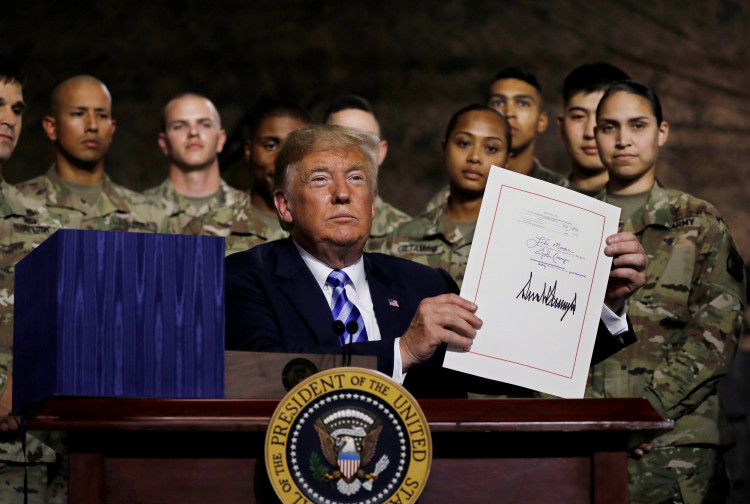The United States, through the leadership of President Donald J. Trump, will no longer be involved in the Syrian conflict as the current administration sought to cut the USD$200 million funding intended for the "stabilization" efforts in the war-ravaged country.
According to CBS News, this recent move from the White House is in line with Trump's plan to retract its participation in the armed conflict while calling on other anti-Islamic State coalition allies to step up their own contributions for them to reach the proposed funding of USD$300 million.
In the statement released by the State Department on Friday, the governing agency has already notified the Congress about its decision to revert the Syrian funds to other "key foreign policy priorities" which will free the US taxpayers from this burden, as spokesperson Heather Nauert said.
As further pointed out by CNBC, the cut, which was authorized by Secretary of State Mike Pompeo, will not include Washington's pledge of humanitarian aid funds for the embattled country.
Much of the slack left after Trump's withdrawal of monetary support will reportedly be made up by the donations from other countries who have sworn to increase their own funding for the Syrian project.
Countries like Australia, Denmark, the European Union, France, Germany, and Italy have already pledged their contribution. Support from the Gulf States such as Kuwait and the United Arab Emirates will also be adding up to the funding. Saudi Arabia, in its case, has also announced to donate USD$100 million to the cause.
Syrian Stabilization Projects
The project puts focus on rehabilitating damaged Syrian infrastructures such as electricity and water supply.
Meanwhile, much of the war-torn nation is peppered with landmines and improvised explosive devices (IED). It is the main goal of the rehabilitation program to get the key areas of the country ready and safe for Syrian refugees when they return home.
Brett McGurk, who served as the Special Presidential Envoy for the Global Coalition to Defeat ISIS, said on Friday that the funding from the coalition forces will allow them to "continue at pace in the stabilization programming."
McGurk meanwhile clarified that the US forces stationed in the country will remain until further notice, despite the current funding directive from the White House.
The civil war in Syria has been going on for the last seven years. Different groups are involved in the fight to seize control of the oil-rich country, however, the majority of the conflict is being fought between supporters of Syrian president Bashar al-Assad and the rebels who clearly don't want Assad to remain in power.






